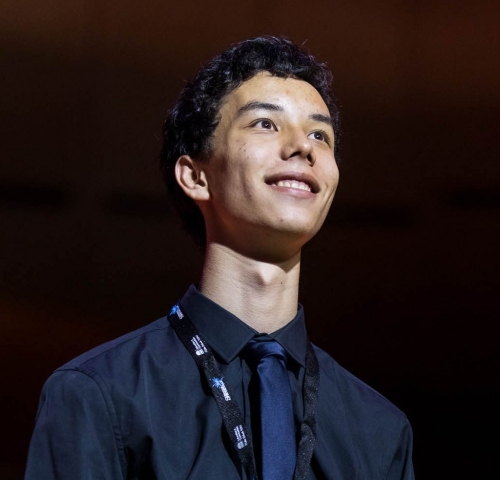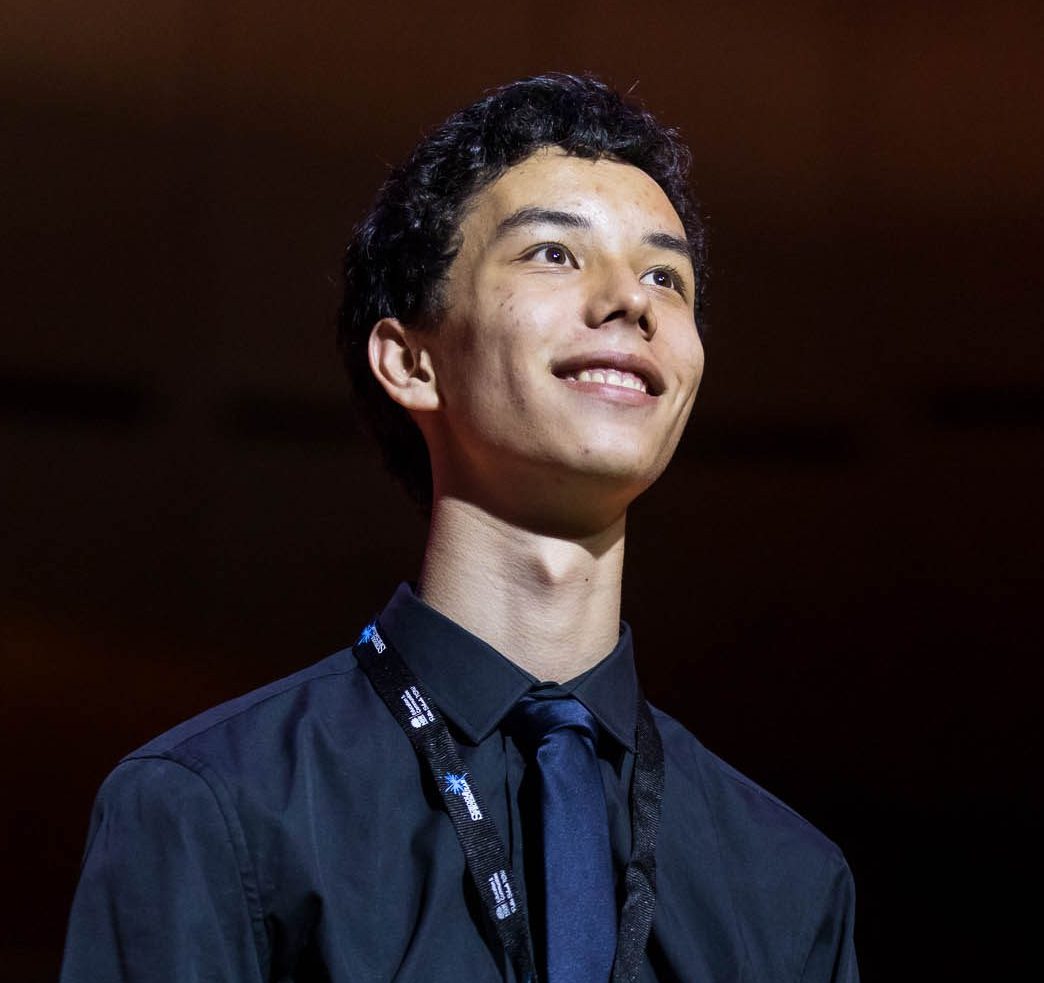
Damian Lin
University of Sydney
Damian Lin grew up in Sydney and took interest in mathematics and science from a young age. In 2023, he is completing his degree majoring in Mathematics and Physics at the University of Sydney, including writing his thesis with his honours supervisor, Zsuzsanna Dancso. Outside of mathematics, he enjoys board games and singing, being the president of Sydney University’s choir and the Sydney University Musical Society.
Can you give me a quick rundown about the type of mathematics you are studying and its potential impacts for the broader community?
The maths I study is knot theory – roughly we take a piece of string and tie it around itself and join the ends up. But there are many ways to do this – does our string end up in a circle, or does it have a knot in it? It may be very hard to tell, and even harder to find which tied up strings are the same as each other. Nevertheless, there is something neat about classification problems like this that draws mathematicians in. Broadly speaking, I look at a generalisation of knots that can’t just be drawn on the plane but need surfaces such as the surface of a donut. I study the tools, called invariants, we use to tell when two of these knots are definitely different. For how pure and distant-from-reality knot theory can seem, it’s amazing how much it is linked to branches of physics such as statistical mechanics and quantum theory. And not to mention the immediate applications to folding proteins and other long molecules in chemistry
How did you get into mathematics/statistics/data science? Was there someone or something that inspired you to this field?
I was particularly interested in science from a young age, so it was a no-brainer to continue to study that at university. I must thank my supervisor Zsuzsanna Dancso who continues to be a joy to study under.
You received a Travel Grant to attend AMSI Summer School 2023. How important was this in terms of your ability to attend, fully participate in the program and meet others studying in similar fields?
The AMSI Travel Grant was integral to my ability to attend and participate in the Summer School. Without it, I would never have had the same opportunity to meet and discuss mathematics with the amazing lecturers and students. The ability to discuss mathematics in-person is absolutely crucial to learning it well.
What was the most valuable part of the program for you?
Being able to ask questions to lecturers at consultation hours, or in time off with fellow students, and discuss things until you reach a solid understanding – this is something that it would take many times as long to do reading by oneself.
In the long-term, what do you think are the benefits of having attended Summer School?
In the short-to-midterm, AMSI Summer School allowed me to free up my second semester of honours and focus on thesis-writing and research. And in the long-term, being able to attend summer school enabled me to meet a whole bunch of likeminded people who work in similar areas of mathematics – people that will be my colleagues for the rest of my career if I end up in academia.
Summer School included a special Careers Day program which aims to help give students an idea of the kinds of career paths available to maths graduates in industry and private sector research areas. Were you previously aware of the types of industry opportunities available to mathematical science graduates?
I am less inclined to work in industry than I am in academia, however the Careers Day program definitely helped me gain information about the vast variety of captivating careers in the mathematical sciences, and I feel safer having that backup plan.
What advice would you give to someone who is considering applying for Summer School in 2024? Should they apply and why?
You get to study an incredibly interesting mathematical topic taught by experts, and at the same time meet fun people studying similar things, with a bunch of fun social events. This was one of my best experiences at university, and I’ll definitely be applying again.
Where do you want the mathematical sciences to take you? Where do you see yourself in five, ten years’ time?
It would be lovely to be able to have a research career. Nothing sounds better than being able to solve challenging problems and explore the beauty of how the universe works and get paid for it! But at the same time, there’s also something incredible about being able to give others that ‘a-ha’ moment as they make sense of something for the first time. So regardless of what I’m doing at that stage, I hope it involves both some research or problem-solving and some teaching.

